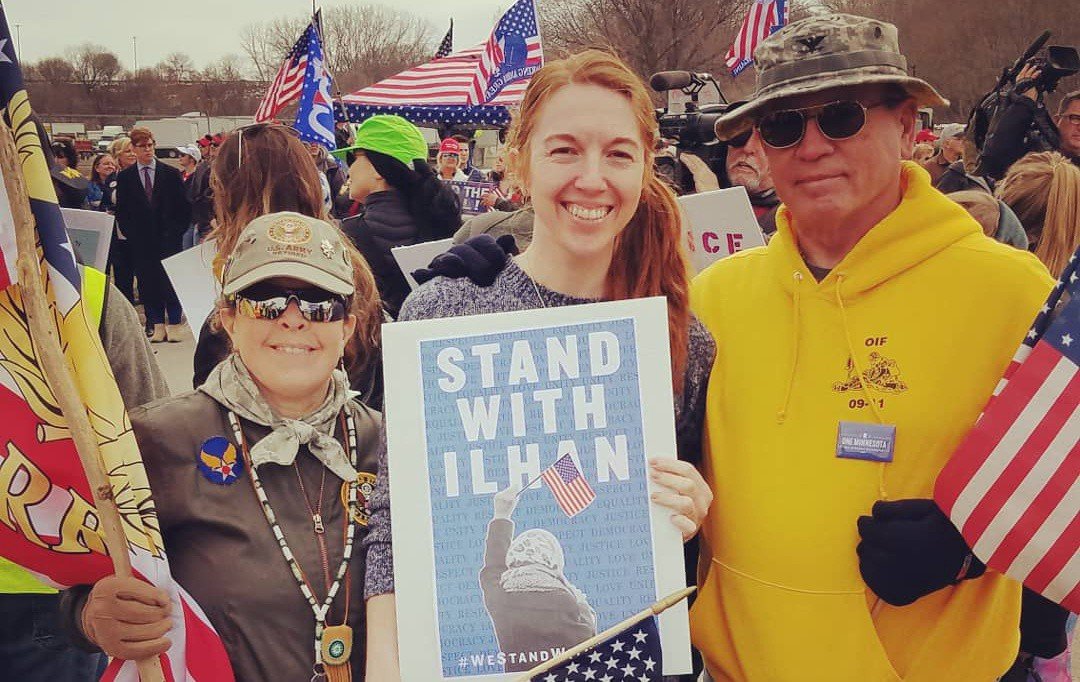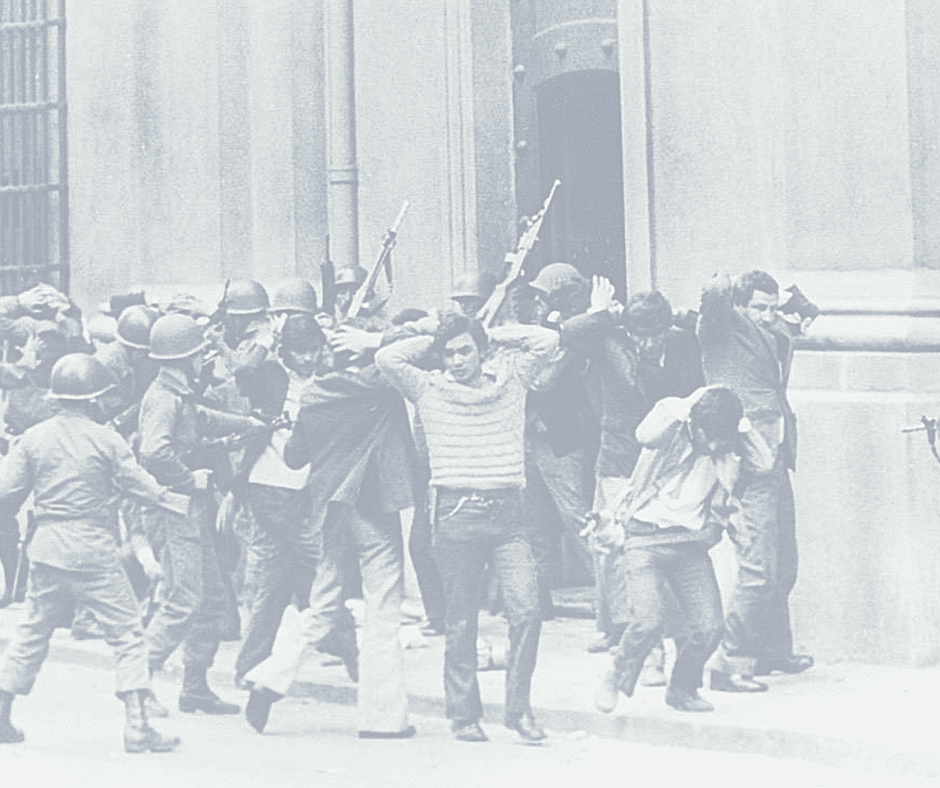By Amanda Madison
U.S. Army combat veteran warns: “stoking fear of the ‘other’ is the president’s best weapon, and Congresswoman Omar is the perfect villain in his story.”
On April 15, 2019 I attended a rally in support of Congresswoman Ilhan Omar held during President Donald Trump’s visit to Nuss Truck and Equipment in Burnsville, Minnesota. The previous Friday, I found myself in shock and outrage over a video tweeted out by the President of the United States that invoked the tragedy of September 11, 2001 to attack my member of Congress.
I am a Minneapolis-based organizer, U.S. Army combat veteran, and mother to two young children. I am writing this piece as someone who knows my Congresswoman Ilhan Omar very well.
It began with a speech Congresswoman Omar gave to the Council on American-Islamic Relations (CAIR) on March 23rd. She referenced the collective punishment of Muslims in the United States and around the world after the attacks of September 11, 2001. Her message was one of human rights and the need for Muslims to live their truth in dignity and assert themselves as a community to live and worship free from bigotry and persecution.
The video tweeted out by President Trump sends a very different message. It is a classic example of fear-based authoritarian propaganda that incites hatred and violence against Congresswoman Omar, CAIR, and the wider Muslim community. It included a single line from Congresswoman Omar’s speech cut out of context and repeated over and over again against a backdrop of the horrifying footage of hijacked airplanes crashing into the Twin Towers of the World Trade Center, the buildings collapsing, and a final line of text “September 11, 2001. We remember.”
The power of the president’s video chilled me to the bone. I fundamentally object to his message and recognize it for the outright nonsense that it is, but in that moment I also recognized the tremendous impact it would have on people who overindulge patriotism and feel threatened by the “other” they do not know and do not understand. I fear for my Congresswoman’s life, I fear for the Muslim community, and I fear for the future of our world if we do not change course.
President Trump’s targeting of Congresswoman Omar should come as no surprise to anyone who’s been paying attention. She is the embodiment of everything the president and his base stand against. She leans into her own identity as a Black woman, Muslim, immigrant, refugee, and American. She is unapologetic. While the arc of the history of the United States is tragic, the fabric of this nation is filled with the stories of powerful and resilient people overcoming hardship against all odds. And across each of these stories, there is a common thread: they did it with others. Congresswoman Omar understands the importance of moving together towards our collective liberation, and that’s why she’s dangerous to President Trump, his base, and everything they stand for.
When I was in the U.S. Army, I saw the power of what can be achieved when people of all faiths, colors, and creeds come together to support one another in experiences of individual and collective struggle. It’s become common knowledge that the U.S. invasion and occupation of Iraq in 2003 was wrong. As soldiers, we felt the moral injury on the ground together, long before it was okay to say so. I left the military in 2008 saying so, just as the country was collectively beginning to rethink our presence in the Middle East, especially Iraq. During my darkest days in Iraq in 2006, I found strength in community and connection with my fellow soldiers. We understood how much we needed each other in our shared-struggle, and that’s how we got through it together.
I’ve found similar community organizing in Minneapolis. My friends and colleagues are Black, brown, white, indigenous and immigrant, rural and urban, Muslim, Christian. I’ve learned that we have far more in common than we have differences. When we lock arms together, fearless and clear about who we are and the values we share, we’re unstoppable.
The truth is President Trump knows this. The entrenched leaders of both political parties know this. The truth is that there are far more of us than there are of them. The only way to keep control is to divide us up by the way we look, the gods we worship, or the places we come from. Stoking fear of the “other” is the president’s best weapon, and Congresswoman Omar is the perfect villain in his story. She holds and owns multiple identities that quickly and easily spark a range of negative emotions, from subtle unease to blatant, rageful hate.
The invocation of the tragedy of September 11, 2001 is an incredibly powerful one. That day we lost nearly 3,000 of our people at the hands of just nineteen terrorist hijackers. Our reaction to that horrible day resulted in forceful occupation of two countries, Afghanistan and Iraq, and rapidly destabilized an entire region of the world. Since then many, many human lives have been lost. At home, we saw an increase in profiling, harassment, and violence against Muslim-Americans at airports, grocery stores, and schools all across the United States. Things got a little better, or so it seemed, but then Donald Trump won the presidency…
We’re at a crossroads and we each have a choice to make. One side want us to fear, distrust, and hate one another, so a wealthy few maintain control and keep taking money out of all of our pockets. The other side wants us to care for and have faith in one another. At the end of the day, we all want similar things: happy, healthy, and fulfilling lives for ourselves and our families.
I won’t be afraid. I refuse to stand by and let fascism take hold in the United States. I’m with Congresswoman Omar because she stands boldly in the face of fear. Like so many of the incredible women leaders of color recently elected to public office, her bravery and resiliency are awe-inspiring. I’m going to stand arm and arm with my Black, brown, indigenous and immigrant friends and neighbors. I’m going to be on the right side of history.
Will you look back and remember that you were too?





